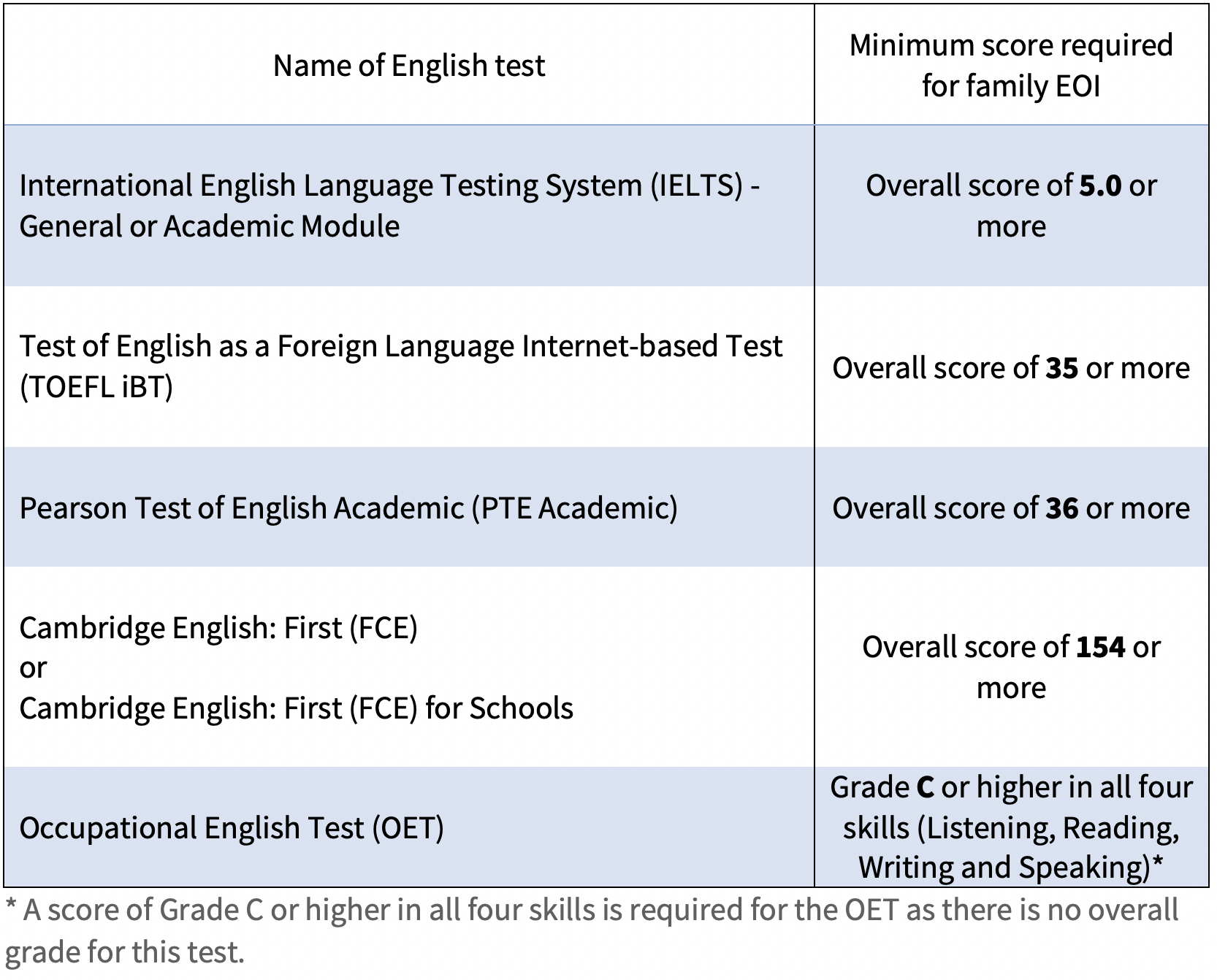
Our Visa Service
Our Job Seeker Service
Visas for New Zealand
Jobs in New Zealand
FREE ASSESSMENT

Different levels of English are required for various visa types.
The necessary standard of English capabilities is highest for principal applicants under the Skilled Migrant Category because the goal of this policy is to attract skilled migrants with an excellent professional background that can be transferred to New Zealand.
It is realistic to say that anybody wanting to find employment and use their highly qualified skills, will need to be able to communicate in English on a very high level. If you have to be registered with the professional board in charge of your profession, the required level of English might be even higher. This applies to teachers, nurses, doctors etc.
The minimum English requirement must be met by the Principal applicant, as well as the Principal applicant’s partner and any dependent children aged 16 and older.
Principal applicants meet the minimum standard of English under the Skilled Migrant Category in three ways:


Principal applicants must either show an IELTS report with an overall band score of 4 or more or provide evidence that they meet this requirement. Other evidence can be considered. Their partners and dependent children can either show that they have an IELTS score of 4 or have an English speaking background or can pre-purchase English language (ESOL) tuition.
Applicants under Investor Plus (Investor 1) category and their families do not have to meet any language requirements.
Principal applicants under the Investor category (Investor 2 category) must have an English speaking background or an overall band score of 3 or more in their IELTS ( International English Language Testing System) test report. Their family members must provide evidence of the same level or they can pre-purchase ESOL tuition.
If you are a principal applicant under Talent (Accredited Employers, Arts, Culture and Sports) and Long Term Skill Shortage List instructions, you will not be required to meet any English language requirements when you apply for residence.
There are no specific English language requirements for work visa applicants. However, Immigration New Zealand expects a certain level of English to ensure that you can undertake your employment in New Zealand. The standard required will depend on your employer’s requirements and the job description. Your immigration officer will need to be satisfied that your level of English is sufficient to perform your duties correctly and will assess this during your visa application process.
Immigration NZ does not set any English language requirements for students. Some Education Providers (especially at tertiary level) require a certain level of English before offering you a place, but this will vary from one provider to the next, and you will have to find this out individually.
A recent test from the International English Language Testing System (IELTS) can be used as proof that you meet our English requirements. The International English Language Testing System (IELTS) is an internationally recognised English language assessment. The certificate must be less than two years old.
In all cases, Immigration New Zealand may still require an IELTS certificate.
You must meet the minimum requirements to be approved for your visa. If your partner or child(ren) aged 16 years or older do not meet the criteria above, you can choose to pay for English for Speakers of Other Languages (ESOL) tuition in New Zealand.
This allows your partner and child(ren) to improve their English after they arrive in New Zealand. You purchase this tuition from New Zealand’s Tertiary Education Commission. Providing all other visa requirements are met, you will be granted a residence class visa once the tuition charge is paid. Your partner and child(ren) have five years in which to complete the ESOL tuition you have paid for.
Your partner’s and child(ren) ’s IELTS score – across all four bands – determines the amount you have to pay for pre-purchased ESOL tuition.
If you are not able to supply an IELTS certificate, you have to pay the maximum charge. The charge to be paid includes an administration fee and an ESOL entitlement tuition fee. The ESOL entitlement is the amount of money you can use as tuition fees.

Ask us how you can turn your plans for New Zealand into reality.